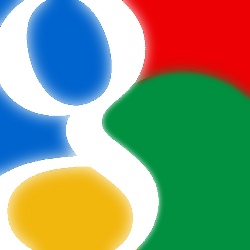Check the Fourth Revolution book’s schematics by following this link.
Enjoy, reuse, comment…
As knowledge and development is today a major part of the compensation package, then the one and only way to retain your employees is to give them more of: knowledge and development!
And you know what? That can be almost free if you take the time to develop them in the workplace.
Knowledge and development is part of the compensation package. If you don’t provide it you are not competitive and K.E.E.N. will leave. If you provide plenty of it you can pay less money.
And if you want to retain people, stop the stupid practice of the Industrial Age which was to cut all the training and development budgets as soon as the sea gets rough. Rather, increase it. Publicize that your company is a great place for development.
What’s more, if you leave people space for their own development the rewards to the organization will be plentiful and unexpected. The organization’s culture will be open and collaborative.
Today in the Fourth Revolution, giving more knowledge and personal development opportunities is the secret recipe to employees retention.
What is your current compensation package?
I’m sure you’ll answer with a number, plus maybe some comments on social security and additional perks of monetary value.
Well that’s not what is the most important in your compensation package.
In your job, do you get to develop your knowledge? Do you get to develop your networks? Are you developing yourself by being stretched beyond your comfort zone in a safe environment?
That’s also part of the compensation package. The K.E.E.N. expects to be able to develop his knowledge, her value, to be challenged.
Actually in the Fourth Revolution, beyond a minimum salary, knowledge and personal development should probably be the majority of your compensation package.
Look at your situation. Is that the case? Will you ask an increase… in knowledge and development? Act now. That’s urgent. Do it.
Google has decided to put together all their products in an impressive presentation, the Google table of code elements.

The fact that it looks like the periodic table of elements of chemistry (Mendeleev table) is not a coincidence. The Mendeleev table was invented in 1869 as a classification of the new discoveries of the Industrial Age in chemistry.
Isn’t Google presentation presumptuous? Anyway it gives a good view of all the types of applications on the market today. These can be expected to still grow significantly and branch out as, further in the Fourth Revolution, we will invent new ways to leverage the power of long distance connectivity.
Have a look at this interesting view of the world of applications as it unfolds!
I am very happy to announce the roundtable organized on Saturday June 25 at 10am at the Malaysian Association of Certified Coaches (MACC), on the topic: “Improve coaching effectiveness by understanding the Fourth Revolution” (click on the link to see the flyer).

At that occasion I will also present and sign the book “The Fourth Revolution”… in the last days of its launching price!
Join the roundtable at the following address:
MACC – 62, 2nd Floor, Lorong Rahim Kajai 14, Taman Tun Dr Ismail,
60000 Kuala Lumpur, Malaysia
Don’t forget – Saturday June 25 at 10am!
There is an amusing contradiction.
We could think that all virtual collaboration tools should be bringing us toward the Fourth Revolution, into the Collaborative Age. On the contrary, some virtual tools do in fact keep us in the Industrial Age mindset.

Most tools that have been developed to enhance long distance collaboration, in particular when it comes to project management, are in fact deeply ingrained into the Industrial mindset. Look at most tools for virtual collaboration: they enhance this tendency to breakdown the work into tasks and asking individuals to address them based on their competency.
This will never lead to the incredible creativity of people working together, closely, emotionally connected, toward a challenging goal. This makes real, effective teams an impossibility. This makes creating technological ruptures and devising astoundingly clever ideas completely impossible.
Amazingly, a vast array of virtual tools continue to propagate the Industrial Age mindset. When will it stop? When will we understand that these tools are obsolete when it comes to creating the real value of the Fourth Revolution?
The fate of Google in China is a very interesting event. Combined with the Arab Revolutions, gives food for thought about the impact of the Fourth Revolution on autocratic governments.

An article from CNN gives a detailed account of the misfortunes of Google in China. It is a bit long, but it is worth the read. In particular, because it shows how the uncompromising attitude of Google frontally collided with the suspicion of the Chinese officials. That was certainly quite a cultural shock!
So, let’s take a high level view looking at what will certainly happen in the future. China will certainly be able to develop on its own tools that will give a similar service to Google, Facebook etc. The Chinese characters help, and China is a big enough country to have everything done in their native tongue. Still, isn’t China taking a path, that on the long term might isolate it from the creativity of the Collaborative Age?
That might be the case. We already see that China being the manufacturer of the planet, had developed services much slowly than India. That is maybe the long term communist mindset (an Industrial-Age oriented mindset). India is democratic, open on the internet, developing myriads of Fourth Revolution applications using the most of long distance communication.
Who will win? I have a guess. On the long term, being isolated from the waves and currents of global creativity is not sustainable. China is large, has its own language, and might resist a bit longer than smaller countries. Still the Fourth Revolution calls for inclusion in the stream of the world.
China will need to change or will crumble. And that might be soon, so quick are the changes of the Fourth Revolution.
And what about Google? It might also need to change, as it seems. Let’s make a guess? Who will change dramatically first? China or Google?
I just found out that the world is not flat. The leveling of the world with the Fourth Revolution is a myth.
I’m living in an emerging country, Malaysia. With the Fourth Revolution, I feel a citizen of the world. I can connect to blogs and ideas from anywhere in the world. I can correspond with people from everywhere.

And then I decided to write a book, and self-publish it so that it can be available worldwide, using those terrific modern tools like Amazon, e-book versions etc. It looks so simple to do that!
Well- that’s probably the case – if you live in a developed country!
Worldwide distribution on e-stores is where the problems started. I discovered that you can’t download Kindle e-books in Malaysia and Singapore. That the Malaysian authority delivering the ISBNs (unique worldwide book numbers) apparently was never asked for ISBN’s for e-books (they are still wondering what to do with that request). That you can’t upload a book as a Kindle if you don’t have a bank account in the US, UK or euro zone (which fortunately, I have). etc etc
Let’s look beyond this simple example. If I’m living in a developing or emerging country today, and want to share my ideas, I can open a blog or a Facebook page. That’s fantastic. Now, if I want to publish and distribute a book or something more tangible, I need to use developed countries’ companies – and there are significant hurdles to overcome.
Effectively, the developed countries still drain the brains the world, now on internet.
Entrepreneurs of the emerging countries, raise to unleash the potential of your countries! Join the Fourth Revolution infrastructure!
What do you think? Did you encounter such issues?
How bureaucratic is your organization?

Here is the ultimate test.
It’s fairly simple.
It’s based on the fact that bureaucracy is the triumph of the means over the end.
So, take the objectives of your organizations, of your department, or your personal objectives in the organization. What proportion of these objectives are about producing means, for keeping busy (for example, write a policy about… write 3 procedures about… produce one press release every so and so…)
Conversely, what proportion is about real results that matter to other people (clients, stakeholders). Like: increase satisfaction level by so many %, deliver under 3 days…
The proportion of objectives related to means is a good measure of how bureaucratic your organization is. Experience shows that it is generally fairly consistent across the organization, except maybe at the top.
Move! Make sure most of your own objectives are result-driven and that you’re left the choice of the means. And you know what? It’s much more fun!
That’s probably the sign we should put on the fence of the large Industrial Age companies.

For two reasons.
One, you’d better keep out because that’s not going to be fun when they will be overwhelmed by the value generated by the Fourth Revolution. They will resist and fight and destroy what’s too close.
Second, if there is a fence around these organizations, for sure they are not open organizations. And they cannot benefit from the value of collaboration.
So keep out of the dinosaur area. They’re going to be wiped out. The more adaptable and flexible will prevail.
Austin Kleon has written a great visual post on boosting creativity: How to steal like an artist (and 9 other things nobody told me). It shows clearly that stealing many ideas from the widest number and types of sources possible is needed to create a new one. And there are a lot of hints about how to boost your own creativity, many of them we have discussed already in the blog.
Enjoy the read. Here it is again: How to steal like an artist (and 9 other things nobody told me).
I’d like to add one. Exercise your creativity. Spend a few minutes each day just being creative. Choose your medium – paper and pencil, computer, writing a text… exercise because that’s a skill that develops over time and exercise.
So, when do you start?
I just read a great book: Talent is overrated, by Geoff Colvin.
It explains where the greatest achievers find the source of their talent. And that’s not from some innate capability or just sheer hard work.
Geoff Colvin identifies the concept of deliberate practice as the key to sustained excellence. Deliberate practice is hard work, because it is still required to go through thousand of hours of practice. But it is more than that:
So it is not just the hours of practice that count. It is also how practice is focused on improvement, it requires feedback to be constantly available. It generally requires somebody else to design the practice program and give the feedback.

It is quite straightforward to understand this in the field of sports. What about the field of leadership in an organization? How often do you stretch yourself, repeat difficult actions, and do you get continuous feedback? Do you have a coach to design and force you through the process?
Yet without these elements, excellence will be impossible to reach.
Think about it. Design a deliberate practice program to become the best in what you want to do. That’s worth it.